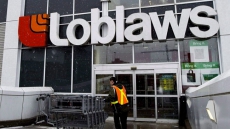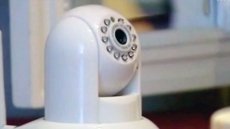In a motion to Divisional Court, they request leave to appeal a ruling in which a judge refused to suspend a provision of the Fair Elections Act on the grounds that it would be too risky.
"Clearly, an appeal would consider matters of public significance," the application states.
The Council of Canadians, Canadian Federation of Students and three voters had asked Ontario Superior Court for an injunction against the government's ban on allowing registered voters to use voter information cards as proof of address at the polls.
In his decision July 17, Justice David Stinson refused, despite finding the challenge raised a serious issue and that some voters could suffer "irreparable harm" by being denied the right to cast ballots.
Suspending a single provision of the act so close to a federal election — which must happen on or before Oct. 19 — was problematic, Stinson said.
In a statement Friday, Garry Neil, executive director of the Council of Canadians, said Stinson had made errors.
"The judge failed to follow Supreme Court of Canada jurisprudence underscoring the need to protect the right to vote as fundamental to our democratic system," Neil said.
The two groups and three individual voters argue parts of the Fair Elections Act enacted last year are unconstitutional. They maintain that thousands of people could be disenfranchised by the new law — mostly students, aboriginals, seniors and the homeless.
However, because the case can't be resolved before the election, they asked Stinson to grant an injunction against the provision that ends the use of voter information cards as ID.
"He failed to consider the evidence of benefits and harms before him in deciding whether the balance of convenience favoured granting the relief requested," the appeal application states.
"Had he done so, it would have been clear and obvious...that the balance of convenience favoured granting an injunction."
Oral arguments on the leave application are to be heard in Toronto July 30, with a decision expected the following week. If successful, the actual appeal would be argued Aug. 28.
The government stripped Canada's chief electoral officer of the right to recognize information cards as a valid form of identification, saying the new rules will prevent voter fraud.
In the 2011 election, as many as 400,000 people used voter information cards as official ID on election day. The government notes 45 acceptable forms of ID are available.




